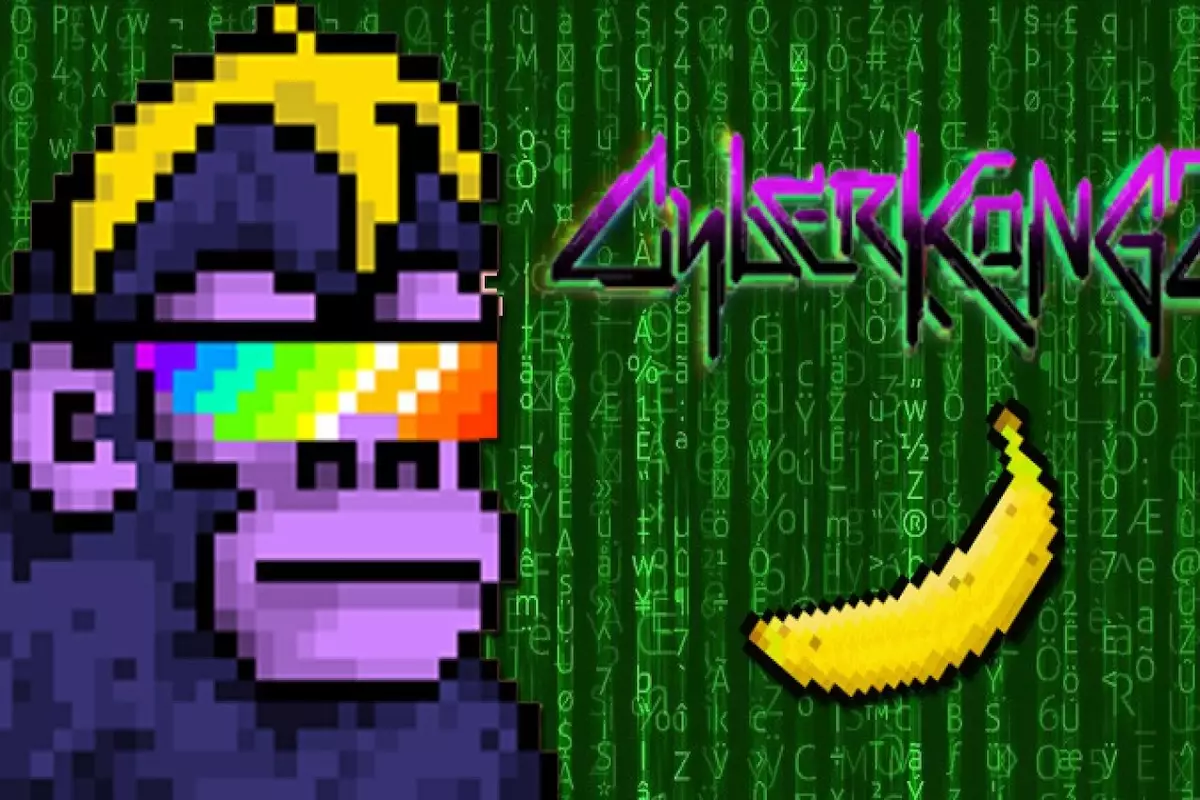The recent issuance of a Wells Notice against the CyberKongz NFT project by the U.S. Securities and Exchange Commission (SEC) has sent ripples through the Web3 gaming sector. This development has the potential to reshape the landscape in which non-fungible tokens (NFTs) operate, raising critical questions about regulatory frameworks and compliance in an increasingly complex digital environment. As NFTs continue to gain traction, it becomes imperative for stakeholders to navigate the emerging regulatory terrain with caution and foresight.
The Wells Notice: Implications and Intentions
At the heart of the concern lies the SEC’s classification of the Genesis Kongz NFTs as securities, a designation that subjects them to a host of regulatory requirements under existing securities laws. Following the sale of these NFTs in April 2021, the SEC’s Wells Notice effectively signals the possibility of enforcement actions against CyberKongz. The project’s defense has focused on framing their actions as a contract migration rather than a primary sale; however, the SEC’s position highlights the growing momentum for regulatory scrutiny over NFTs in the broader crypto ecosystem. This scenario is not merely an isolated incident but acts as a potential bellwether for other projects in the space.
The outcome of CyberKongz’s impending response to the Wells Notice will set a precedent that could dramatically influence how NFTs are perceived and regulated. If the SEC’s classification holds firm, it may necessitate a reevaluation of tokenomics and community governance structures in a myriad of blockchain gaming projects. The industry is at a critical juncture, and the next steps taken by CyberKongz will be closely watched, not just for their immediate implications, but for the larger narrative they could craft surrounding digital collectibles and gaming assets.
In light of this situation, industry voices like those from Axie Infinity have come forward to voice their support for CyberKongz. They emphasize that increasing enforcement could serve as a catalyst for the U.S. government to articulate clearer regulations for Web3 gaming projects. Such clarity is essential for developers aiming to establish sustainable business models within the legal frameworks. The rhetoric surrounding regulatory compliance has taken center stage as projects rethink their approaches to token distribution, in-game economies, and incentive structures for users.
The call for clearer regulations is not limited to the U.S.; it reflects a broader conversation taking place globally. Various jurisdictions are wrestling with how to approach the unique characteristics of NFTs, with different regions showcasing a wide array of regulatory philosophies. In Europe, the anticipated Markets in Crypto-Assets (MiCA) framework is positioned to provide much-needed definitions and guidelines for NFTs. Meanwhile, in Asia, pro-innovation regulatory strategies are emerging, especially in innovation-driven markets like Singapore and Hong Kong. Though there is a spirit of experimentation, regulators are still vigilant about consumer protection and anti-fraud measures. Thus, these regions represent a mixed bag of proactive and cautious regulatory approaches.
The Challenge of Global Compliance
Navigating the landscape of NFT regulation presents a significant challenge for projects like CyberKongz, particularly if they aim to establish a presence across multiple regions. The disparateness of regulations can result in a convoluted compliance matrix, necessitating strategic planning and legal scrutiny. With the potential for gaming tokens to be classified as securities, the implications are extensive. Compliance demands—including disclosures and investor protection measures—could drastically alter how blockchain games conduct their operations, which had previously thrived on innovation and community-centric governance.
The potential transition toward a regulated framework for NFTs demands that gaming companies find a balance between adopting rigorous compliance standards and fostering a culture of trust. Proper compliance is no longer a peripheral concern; it is an integral part of ensuring the longevity and sustainability of projects in the digital space. Companies will increasingly need to implement robust Anti-Money Laundering (AML) and Know Your Customer (KYC) protocols to minimize illicit activity while fostering a trustworthy environment for players and investors alike.
As the intricacies of NFT regulation evolve, the future of blockchain gaming will likely depend on cultivating a collaborative atmosphere among developers, regulatory bodies, and consumer protection agencies. Working together, these players can create a balanced framework that allows innovation to flourish without compromising player and investor security. The CyberKongz Wells Notice could, in fact, usher in a more transparent, accountable, and resilient blockchain gaming industry.
The event surrounding the CyberKongz Wells Notice emphasizes the urgency for proactive engagement in compliance and awareness of international regulatory trends. For blockchain gaming projects to thrive and deliver innovative experiences, they must align their strategies with a developing global regulatory landscape. The outcome of this case will not only reverberate through the CyberKongz community but will set a crucial precedent for the Web3 gaming space as a whole. The decisions made today will shape the foundations that the industry will build upon for years to come.















Leave a Reply